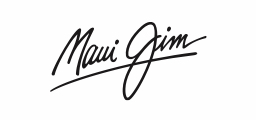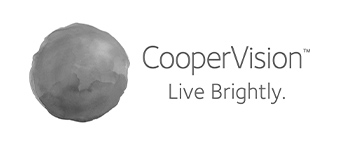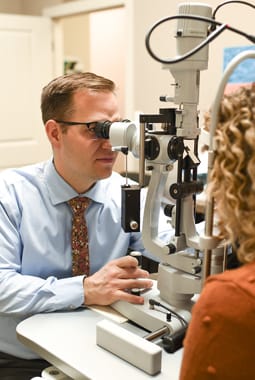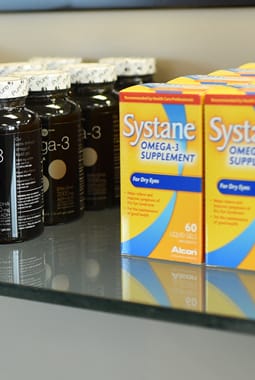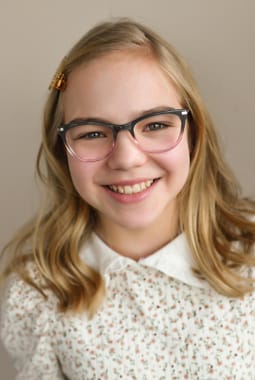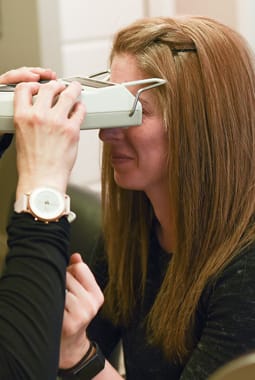- Medicine Hat, AB
- 403-526-4849

Contact Lens Exams, Fittings, & Brands in Medicine Hat, AB
Book Your AppointmentGain Freedom & Flexibility with Contact Lenses
Contact lenses can be an excellent alternative to eyeglasses. Contacts often provide a better field of view and clearer vision, while also offering a lifestyle flexibility that may not be possible with glasses. Contact lenses are great for those who participate in sports or require specialized protective equipment, like safety glasses, without buying multiple types of prescription glasses.
However, because contact lenses fit right on the eye itself, they do require specific care. If you’re considering contacts as an alternative to glasses, schedule your contact lens exam and fitting with us so we can determine which type of contact lenses will best suit your needs and lifestyle.
Contact Lens Exam
A contact lens exam is the same as a comprehensive eye exam, just with a few additional steps. Your optometrist will administer the same tests to determine eye health and visual acuity that you’re used to during a regular eye exam, but because contacts sit directly on the eye we must ensure the health of your eyes won’t be compromised by contact lens use.
If you’re already a contact lens wearer, we will check that your contacts aren’t damaging your eyes.
Contact Lens Fitting
After your eye health and visual acuity are determined, we will measure your cornea using a keratometer and corneal topography. The keratometer measures the curvature of the cornea and corneal topography uses a machine to provide us with exact measurements of the corneal surface. We will also measure the horizontal and vertical diameters of your pupils and irises. These measurements will help us choose the correct size and curve of contact lenses for your eyes.
We will also conduct a tear film evaluation to determine the quality of your tears and your tear production. If you have dry eye, contacts can irritate this condition and cause extreme discomfort. If your eyes are mildly dry or sensitive, we may be able to find you specialty contact lenses that will work for you.
Once we have your measurements, we will discuss your options for contact lenses. There are hard (rigid gas-permeable) and soft contact lenses, extended wear lenses, disposable lenses that last day, a week, or a month, coloured contacts, and much more. We will help you determine if hard contacts or soft contact lenses are better for you and your lifestyle. If you have astigmatism, require bifocals or multifocal lenses, have dry eye syndrome, keratoconus, or other conditions, there’s a contact lens for that!
During your fitting we’ll show you how to insert, remove, and properly care for your lenses before sending you home with a trial pair. We will schedule a follow-up appointment for you so we can see how you’re adjusting to your contacts and how your eyes are handling them. Our top priority is to ensure your eyes remain healthy and your vision remains clear.
It can take a bit of trial and error to find you the perfect pair of contacts. If you experience any issues with your lenses, we can try a different brand or type until you’re satisfied. Our goal is for you to be happy and comfortable in your new lenses.
Our Brands of Contact Lenses
Whether you currently wear contacts or you want to try them in the future, we are happy to help you decide which type of contact lens and brand works best for you. We carry hard and soft contacts, toric and scleral lenses, multifocal, hybrid, and transition contact lenses.

Alcon
Alcon has one mission: to provide innovative products that enhance quality of life by helping people see better. Alcon is uniquely poised to serve every contact lens wearer by addressing the full life cycle of their needs.
Where to Find Us
We are easy to locate and have ample parking. You can find us on Dunmore Road, between TD Wealth and Moxie’s.
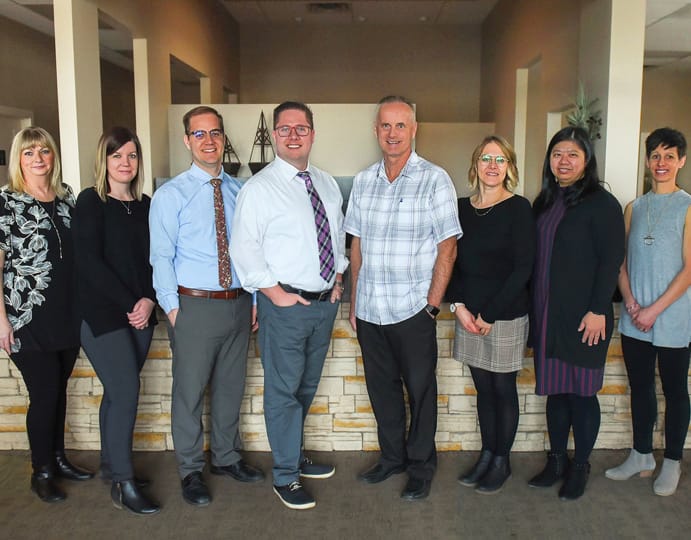
Our Address
3094 Dunmore Rd. SEMedicine Hat, AB T1B 2X2
Our Hours
*7AM-8AM exams available by appointment
Our Eye Care Services
Our Brands


